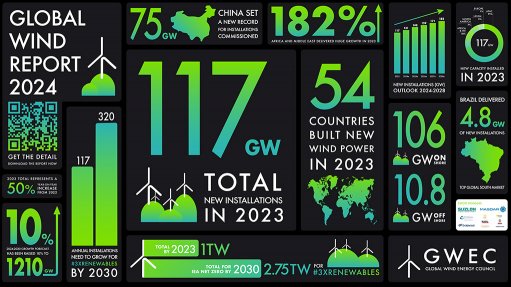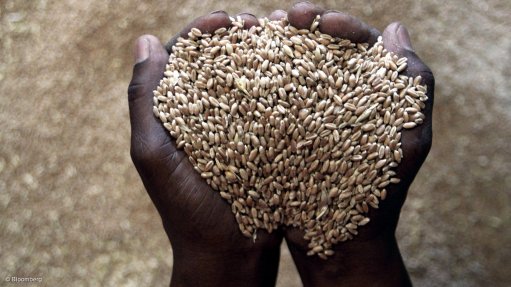Improving SA’s Doing Business ranking requires acceleration of reforms

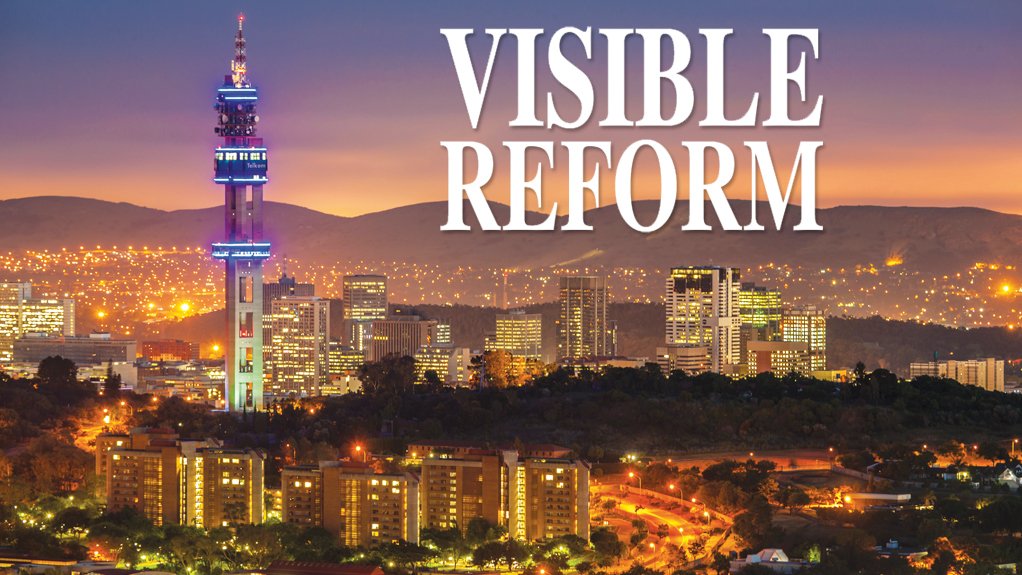
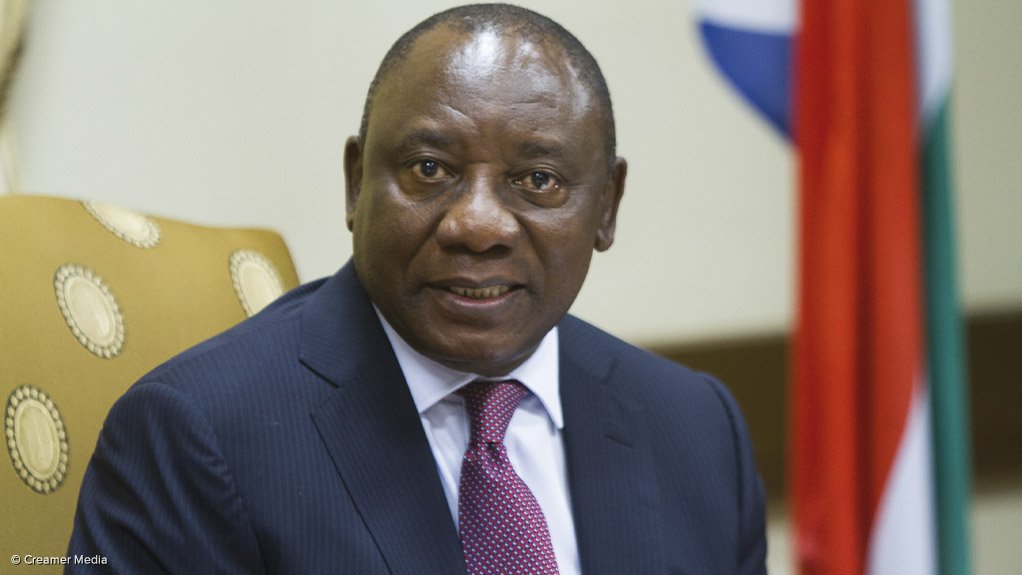
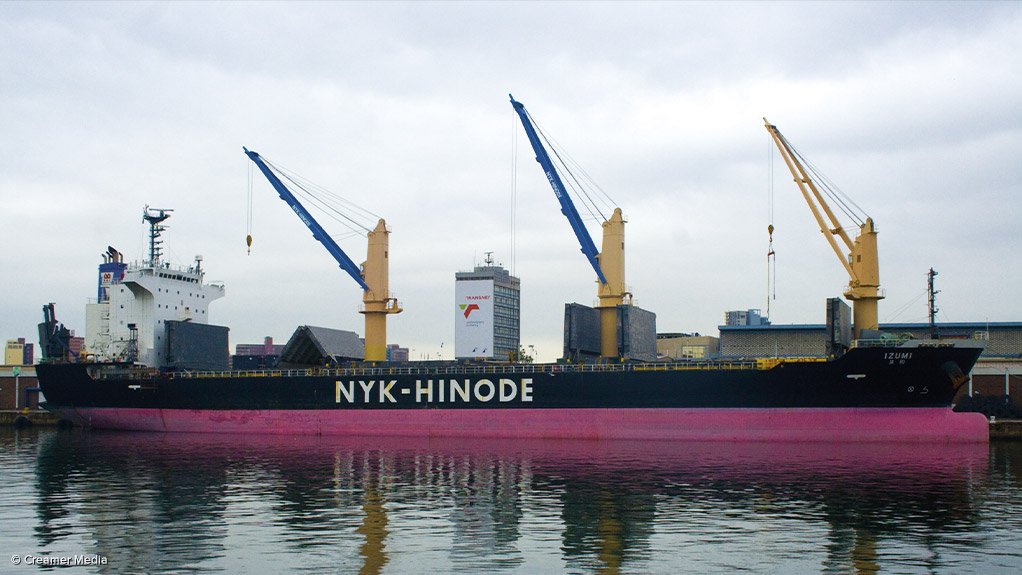
CYRIL RAMAPHOSA The President's target of being among the top 50 Ease of Doing Business global performers within the next three years is achievable
Photo by Creamer Media
INEFFICIENT & COSTLY Across the four ports, the time and cost to comply with border requirements for exports is high when compared to other economies exporting by sea
Photo by Creamer Media
During his State of the Nation address in February, President Cyril Ramaphosa stated: “The World Bank’s annual Doing Business Report (DBR) currently ranks South Africa 82 out of 190 countries . . . we have set ourselves the target of being among the top 50 global performers within the next three years.”
The DBR measures the regulatory business environment for small and medium-sized enterprises (SMEs), assessing whether an economy has sufficient regulations and processes to foster an enabling environment for entrepreneurs, thereby facilitating increased economic activity.
Released in October last year, the latest DBR noted that, while South Africa had improved its statistical score, its ranking remained static at 82 out of 190 economies.
The World Bank’s subnational report, ‘Doing Business in South Africa 2018’, notes that the country’s growth rate remains below the level required to address poverty, unemployment and income inequality.
It further notes: “South Africa’s entrepreneurship levels are well below those in many emerging markets. Moreover, government policies and bureaucracy – as they affect SMEs – are among the lowest-performing factors in an assessment of South Africa’s entrepreneurship environment.”
The report also points out that reforms to improve the regulatory environment for businesses have been “slow to take hold”.
Commenting on the DBR, Brand South Africa research GM Dr Petrus de Kock notes: “In terms of statistical score, there was a marginal improvement of 1.37 points. While South Africa retains its overall ranking . . . it is notable that there were some improvements.”
The two reforms instituted in 2017/18 were in the Starting a Business category, where South Africa reduced the time for online business registration, as well as the Getting Electricity category, where the country improved the monitoring and regulation of power outages.
Hence, the country improved its global ranking in the former category from 136th in 2016/17 to 134th in 2017/18, and in the latter category from 112th in 2016/17 to 109th in 2017/18,
It also improved its global position in the Registering Property category, moving up a spot to 106th, as well as in the Trading Across Borders category, where it moved up four spots to 143rd. The country moved down the rankings in terms of the Dealing with Construction Permits, Getting Credit and Resolving Insolvency categories, ranking ninety-sixth, seventy-third and sixty-sixth respectively.
The only categories where South Africa ranks in the top 50 globally are in the Protecting Minority Investors (twenty-third) and Paying Taxes (forty-sixth) categories.
Outgoing Business Unity South Africa (Busa) CEO Tanya Cohen notes that Ramaphosa’s goal “is achievable over the three-year target period”.
She adds that, as this is a multiyear process that started only this year, any expectation that this year’s DBR, to be published in October 2019, demonstrates any significant improvement is flawed, as it is “too early to see results”.
However, she notes that “Busa expects to see significant improvements by 2020/21, if the current efforts are anything to go by”.
De Kock adds that, after five years of decline in terms of overall index ranking, the relatively stable performance in 2017/18 is perhaps indicative of a change in trend.
Room for Improvement
Cohen notes that, as evidenced by the country’s comparatively low ranking, there are several areas for improvement.
“Business registration is slow and requires different registrations at the point of start-up. So, for example, a business will need to register with the Companies and Intellectual Property Commission for business regis- tration, the Department of Labour for the Unemployment Insurance Fund and Compensation Fund and with the South African Revenue Service for tax registration.”
She comments that, similarly, yearly reporting results in a “significant burden” for smaller businesses and proposes a common registration and reporting portal to streamline processes.
Cohen stresses that small businesses are disproportionately affected by regulations, which create barriers to entry and operation. “The Jobs Summit agreement to specifically consider the SME impact in the socioeconomic impact review of any change to policy, including legislation or regulation, should be implemented with a concerted effort by government to provide policy relief for SMEs where possible. “
Moreover, she suggests that there should be a process during which SMEs can identify regulatory burdens, supported by government commitment to prioritise and implement the necessary changes to alleviate such burdens.
“Government and, indeed, the private sector should implement processes to enable SMEs to access supply chains and work opportunities, and commit to paying SMEs within 30 days of services being rendered.”
She adds that, while this has been a requirement in the public sphere for some time, it has not been consistently implemented. “Where government departments or local authorities persistently do not pay on time, when they should be [doing so], innovative mechanisms to secure payment for SMEs should be explored.”
She also believes that there should be scalability and coordination among startup or entrepreneurial support programmes and initiatives, specifically those that secure access to finance, markets and skills.
These initiatives need to be actively pursued and supported, Cohen comments, citing, for example, Finfind, a South African platform for SMEs that provides “an exceptional platform for access to private and public sources of finance”.
Additionally, South Africa might take a page out of Mauritius’ book, which ranked twentieth overall globally and is the highest placed sub-Saharan African economy. The DBR notes that it “reformed its business environment methodically over time”, adding that “a continuous and focused reform agenda keeps an economy competitive and vigilant”.
South Africa implemented two reforms in 2017/18 and none in 2016/17. Only Eritrea, the Gambia, Lesotho, Liberia, Mali, Somalia, and South Sudan have implemented fewer reforms than South Africa over the past two years.
Moreover, the DBR notes that the top 20 economies have several international good practices in common: “In the area of starting a business, 13 of these economies have at least one procedure that can be completed online in 0.5 days. The electricity distribution utilities in all but one of the top 20 economies use automated tools, allowing for faster, more efficient and more secure restoration of service during power outages.”
Further, in all top 20 economies, court automation is “prevalent”, and judgments are enforced twice as fast on average (95.6 days) as in the remaining 170 economies (200 days).
Importance of Local Government
The ‘Doing Business in South Africa 2018’ report notes that South Africa has 257 local governments, with entrepreneurs facing different local regulations and practices, depending on where they operate.
The report notes that local governments have almost exclusive competence in some areas – such as dealing with construction permits and acquiring electricity. “Registering property, for its part, falls under a hybrid of national and local authority.”
It points out: “Even in those areas where national regulation reigns – enforcing contracts and trading across borders – actions taken locally by a court or a port authority can determine the complexity and efficiency of the regulatory process.”
Cohen notes that the Doing Business Initiative is working with the City of Johannesburg as a pilot programme for other cities.
“There is awareness within government of how local government can be an enabler of investment by being more efficient and better equipped for the demands of a developmental State,” she comments.
Cohen cites some of the efforts to improve local governments’ functioning, highlighting Busa’s invitation to participate in the Integrated Urban Development Framework, which is coordinated by the Department of Cooperative Governance and Traditional Affairs, and seeks to ensure that services, such as the provision of water and electricity and waste collection, “run like clockwork”.
Cross-Border Trade
The DBR notes that international trade is a cornerstone of economic development, given the strong correlation between access to international markets and economic growth.
Among its sub-Saharan African peers, South Africa ranks twenty-forth in terms of cross-border trade and 143rd globally. De Kock recently completed an SA Inc Project review – the project is meant to provide an integrated understanding of the South African footprint in international markets – and presented his findings in March.
His review found that the country’s African peers often cite the “lengthy” processes in South African corporates and State-owned enterprises as the main reasons that business deals “go south”. Additionally, the country’s visa regulations and procedures “have often been cited as cause for concern in bilateral relations”.
Other factors that have hindered cross-border trade on the continent include the perception that South Africans and South African companies are not open to local partnerships or listening to advice, and are sometimes perceived as aggressive and “ignorant of the local reality”.
Additionally, De Kock noted, while there had been fewer xenophobic incidents of late, the country was still associated with xenophobic behaviour.
He stressed that South Africa could learn from other African markets in terms of developing partnerships and relationships, adding that such insights should tie into the broader understanding of the implications and opportunities presented by the Continental Free Trade Area Agreement.
Meanwhile, the ‘Doing Business in South Africa 2018’ report finds that South Africa’s ports have room for improvement in terms of facilitating cross-border trade. “For example, across the four ports, the time and cost to comply with border requirements for exports are high, compared with other economies exporting by sea.”
Cohen and De Kock are cautiously optimistic that Ramaphosa’s target is attainable, if certain policy issues are addressed. De Kock notes that government has made considerable strides since the tabling of the 2018 Budget and is hopeful that its commitment to improve the policy environment is fruitful.
Cohen stresses: “There is considerable divergence in opinion within government and between key influencers about the role of the private sector, the nature of competitiveness and the right to make profit.”
She believes that government needs to clearly spell out its approach so that these concepts can be translated into policy and actions that can benefit the inclusion and growth of smaller businesses.
Comments
Announcements
What's On
Subscribe to improve your user experience...
Option 1 (equivalent of R125 a month):
Receive a weekly copy of Creamer Media's Engineering News & Mining Weekly magazine
(print copy for those in South Africa and e-magazine for those outside of South Africa)
Receive daily email newsletters
Access to full search results
Access archive of magazine back copies
Access to Projects in Progress
Access to ONE Research Report of your choice in PDF format
Option 2 (equivalent of R375 a month):
All benefits from Option 1
PLUS
Access to Creamer Media's Research Channel Africa for ALL Research Reports, in PDF format, on various industrial and mining sectors
including Electricity; Water; Energy Transition; Hydrogen; Roads, Rail and Ports; Coal; Gold; Platinum; Battery Metals; etc.
Already a subscriber?
Forgotten your password?
Receive weekly copy of Creamer Media's Engineering News & Mining Weekly magazine (print copy for those in South Africa and e-magazine for those outside of South Africa)
➕
Recieve daily email newsletters
➕
Access to full search results
➕
Access archive of magazine back copies
➕
Access to Projects in Progress
➕
Access to ONE Research Report of your choice in PDF format
RESEARCH CHANNEL AFRICA
R4500 (equivalent of R375 a month)
SUBSCRIBEAll benefits from Option 1
➕
Access to Creamer Media's Research Channel Africa for ALL Research Reports on various industrial and mining sectors, in PDF format, including on:
Electricity
➕
Water
➕
Energy Transition
➕
Hydrogen
➕
Roads, Rail and Ports
➕
Coal
➕
Gold
➕
Platinum
➕
Battery Metals
➕
etc.
Receive all benefits from Option 1 or Option 2 delivered to numerous people at your company
➕
Multiple User names and Passwords for simultaneous log-ins
➕
Intranet integration access to all in your organisation













